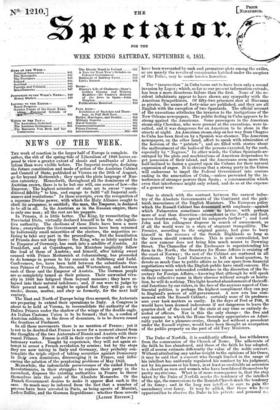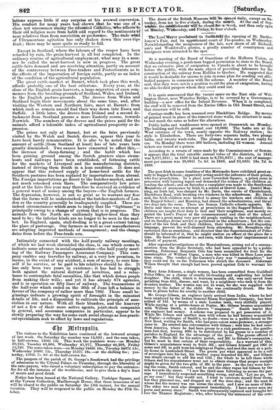The Duke of Norfolk, it is confidently affirmed, has withdrawn
from the communion of the Church of Rome. The adherents of the faith he has abandoned, and those of the faith he has adopted, will of course estimate differently the value of the noble convert. Without attributing any undue weight to the opinions of his Grace, it may be said that a convert who though limited in the range of his intellect has uniformly regulated his conduct by his judgment, not by his passions or his fancy, is at least as creditable an accession to a church as men and women who have bewildered themselves by pretty mysticisms. What is of more consequence is, that the step taken by the Duke_of Norfolk marks the tendency of the intellect of the age, the conversions to the Romish Church mark the tendency of its fancy ; and in the long run intellect is sure to gain the ascendancy over fancy. It may be added, that those who hivc opportunities to observe the -Duke in his private and personal re: lations express little if any surprise at his avowed conversion. His oonduct for many years had shown .tllat he was one of a class not uncommon among the eduoated Crithblics,Itlitradhete"to their old religion more from habit and regard to the sentiments bf near relatives than from conviction or prefereace. The -radesivd of IT1tramontane agitation has only shaken down this over-ripe fruit ; there may be more quite as ready to fall.



























